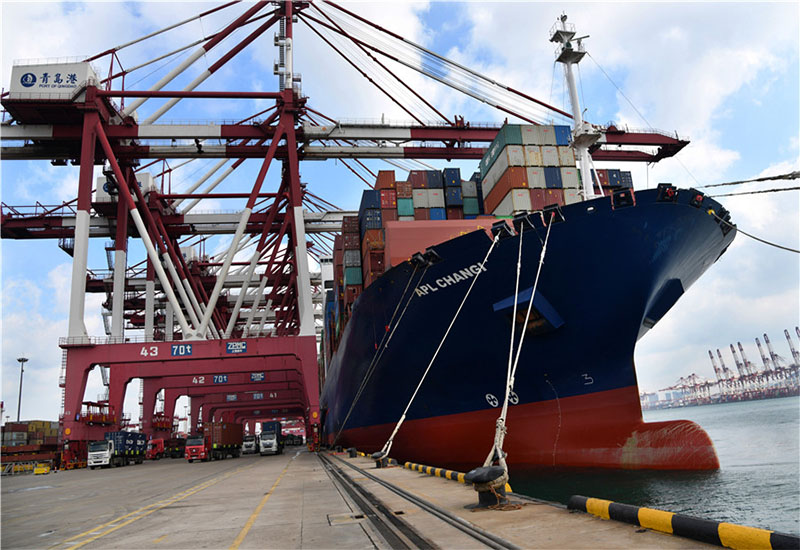Related Information

 Azvenus Time:2025-05-07
Azvenus Time:2025-05-07

Containers are unloaded from a ship at a port of Qingdao, East China's Shandong province. [Photo/Xinhua]
Washington's so-called "reciprocal tariffs" are hurting the United States more than China, and if the US wants to talk, China is expected to be open only to negotiations based on equality and fairness, said a senior economist.
In an exclusive interview with China Daily, Justin Yifu Lin, dean of the Institute of New Structural Economics at Peking University, said the US ignores basic economic rules when it claims to suffer losses from trade with China, and what is happening has already proved its tariff policies are hurting itself badly.
Lin, who is also former chief economist at the World Bank, stressed China has ample room for policies to expand domestic demand and fend off external challenges, including high tariffs. Moreover, he expects China to be the winner in the US' strategic competition.
"Trade is mutually beneficial. Different countries have different comparative advantages. The US buys Chinese products because they are of better quality and cheaper than those produced in the US, and vice versa," said Lin.
Lin said that "the US tariff policy is actually hurting its own people and economy, and now they can't stand it, so they want to negotiate with China," adding that: "If the US wants to talk, our door is wide open. However, negotiations must be based on the premise of fairness, not based on intimidation."
Lin said: "We welcome open consultations. There must be mutually beneficial ways to be found through negotiations to solve trade disputes."
The so-called "reciprocal tariffs "announced in April have so far driven down US bond prices, share prices and investor sentiment, while morphing into a heavy burden borne by US consumers and businesses.
The latest forecast by S&P Global said the US economy will expand 1.5 percent and 1.7 percent on an annual average basis in 2025 and 2026, respectively, down from 1.9 percent in its March forecast, with domestic demand growing at less than 1 percent on an annualized basis for the rest of this year.
It expects tariff-induced price shocks will raise core consumer prices to 4.0 percent by the end of this year.
Sources: https://10times.com/toy-and-edu-china
Pictures are from Internet. Infringement must be deleted.
